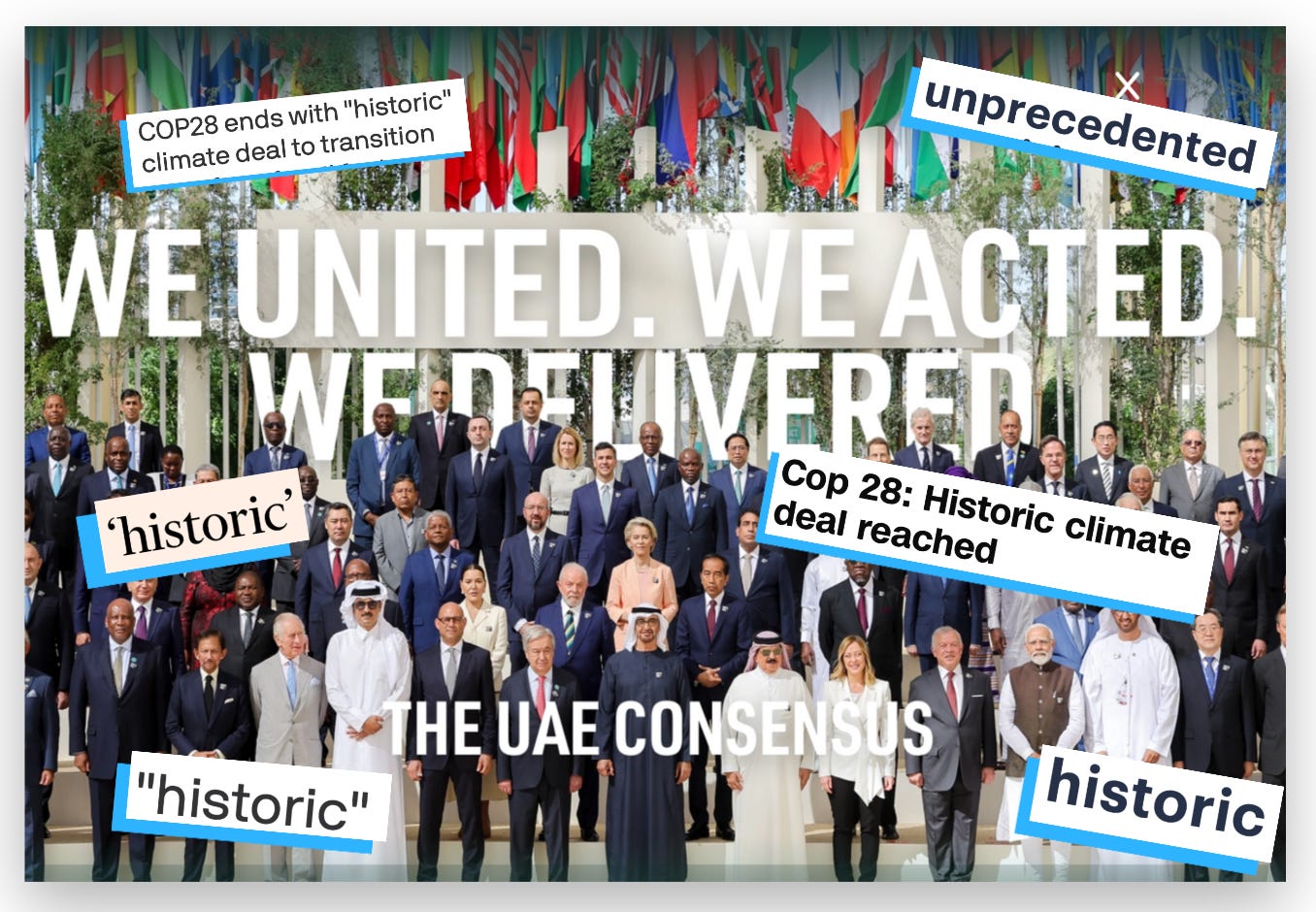On climate deals, beware the word "historic"
It's a trap!
It is important for leaders of high-polluting nations to put a positive spin on the outcomes of global climate talks. An easy way to achieve said spin in to market the outcome as “historic.”
This is what leaders like U.S. President Joe Biden and COP28 President Sultan Al Jaber are doing in the wake of COP28. Following t…


